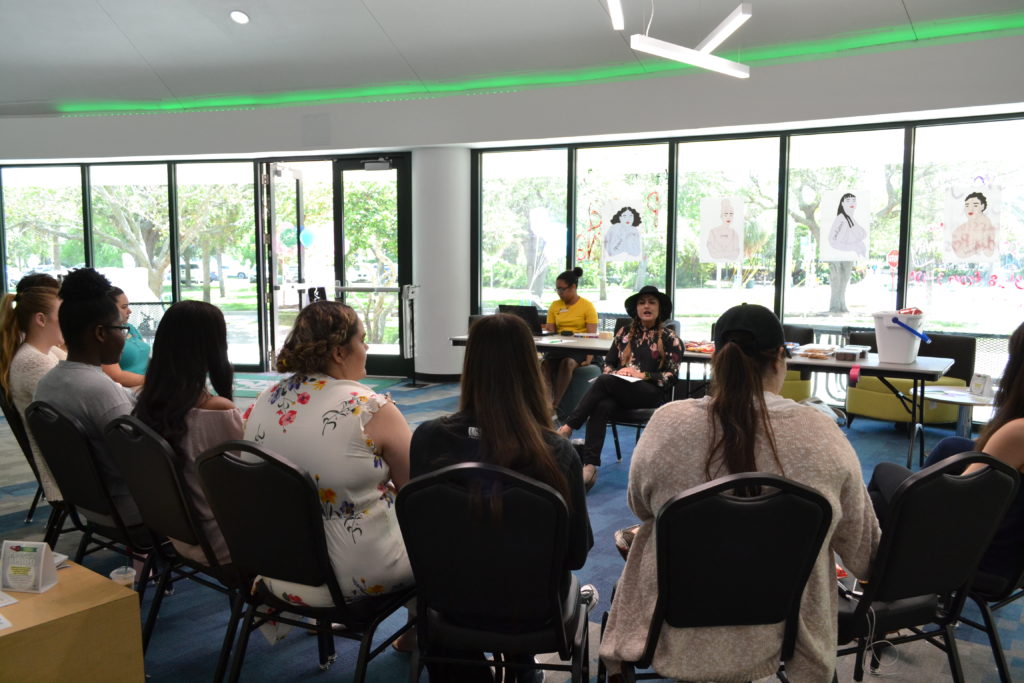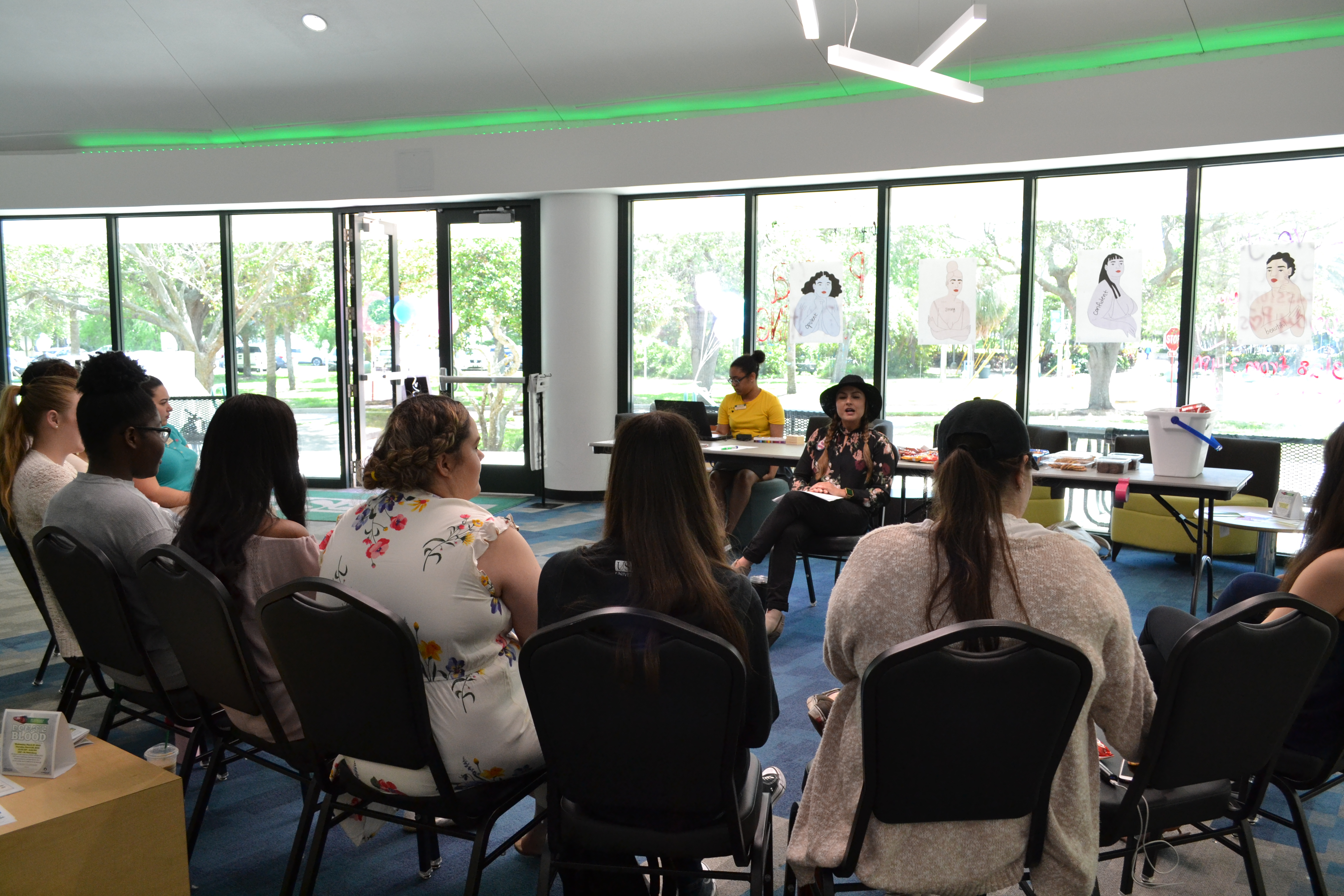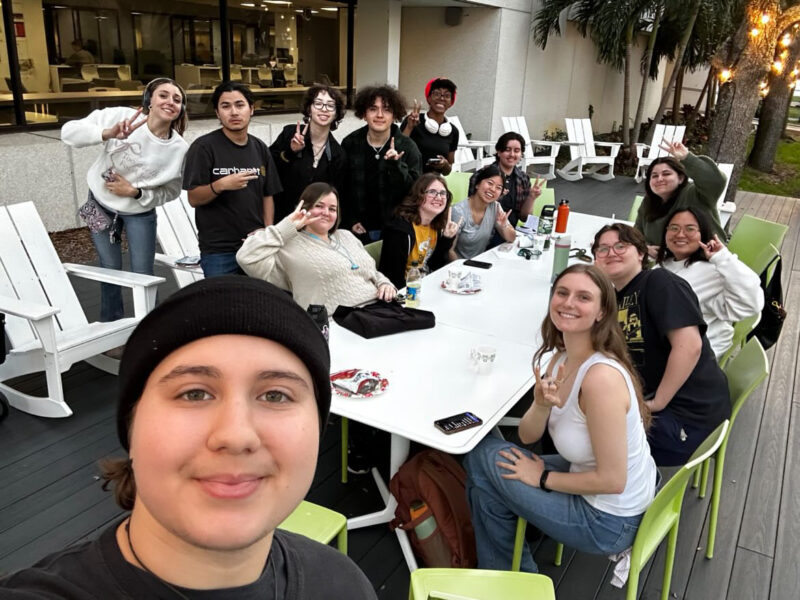
By Amy Diaz
Opulent. Strong. Confident. Beautiful.
Those were the words on four posters hung on the windows of the Student Life Center on March 28, for the Love Your Body event hosted by the Office of Multicultural Affairs.
The body positivity discussion, which drew a crowd of around 20, was led by Heather Widmer, a licensed mental health counselor and USF graduate, who specializes in self-esteem and disordered eating.
She began the discussion by defining body shaming and body positivity and asking the crowd for examples of each in their own lives.
According to Widmer’s definition, body shaming is any negativity toward yourself or others on the basis of body image and appearance.
Attendees sat in a semicircle and shared their experiences with body negativity, like holding a pillow over their stomach when sitting with a group of people or asking friends not to post pictures of them when they feel unattractive.
Widmer explained that people are not born with negative body images, but that they are learned through comparison, social media and family relationships with food and body image.
“Our brains typically stop developing around age 25,” Widmer said. “If you’ve been receiving negative messages your whole life, we’re talking about major wiring that’s made connections that are like spiderwebs. They take some work beyond just the counseling sessions and the self-help books to rewire yourself and think differently.”
Widmer recommended giving the negative voice in your head a name to help separate your voice from your insecurities.
She went on to define body positivity as being able to look at yourself and be loving instead of picking yourself apart.
She explained that mass media, especially social media, makes it difficult to escape the negative messages telling men and women that they aren’t good enough.
Attendees also shared their own tips for practicing self-love and body positivity.
Some women said they follow empowering Instagram accounts, like haircare pages for women with their hair type or positive daily affirmation pages.
Jessica Berringer, 19, shared that she asks herself who her insecurities are benefitting. When she remembers that it’s usually rich men who own makeup and clothing companies, she says she is able to move past them.
“Being self-conscious is never productive,” Berringer said.
Widmer shared four action steps on how to overcome insecurities.
The first is to give yourself a compliment every day.
“So while I’m brushing my teeth, I’ll say, ‘My hair looks beautiful today,’ or ‘I really love my eyes,’” Widmer said.
The second is to practice accepting compliments from others.
“When somebody else gives you a compliment, you’re not obligated to compliment them back just to take the spotlight off of you,” she said. “Just work on saying thank you.”
The third is to work on complimenting somebody else.
“Empower those around you and encourage one another,” she said. “None of this jealousy stuff. You have your own beauty, they have their own beauty, and we’ve all got something to offer.”
Lastly, Widmer recommends meditating over where we find value and what defines our worth.
“Intelligence, sense of humor, and being compassionate,” she said. “There are far more beautiful things about somebody than just outward appearance.”




Thank you for having me as a speaker! I was honored to share this information with such a great group!